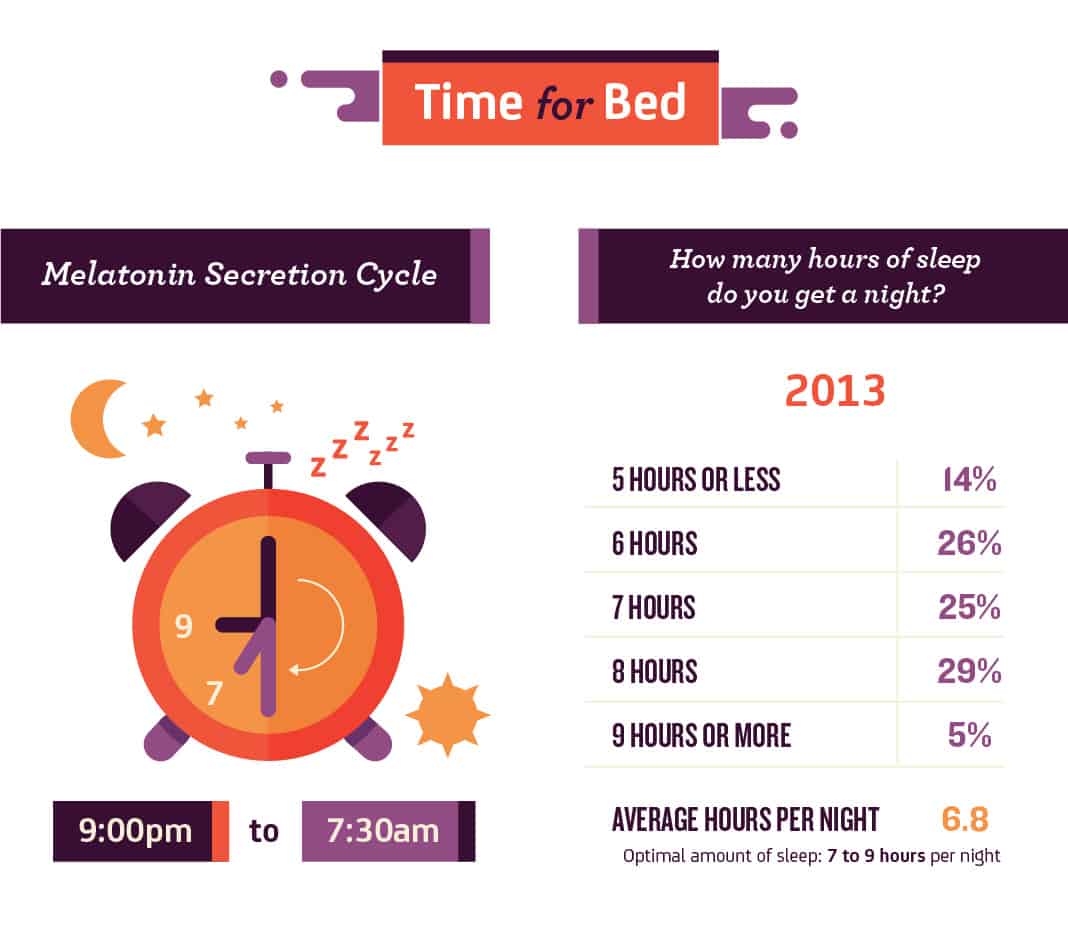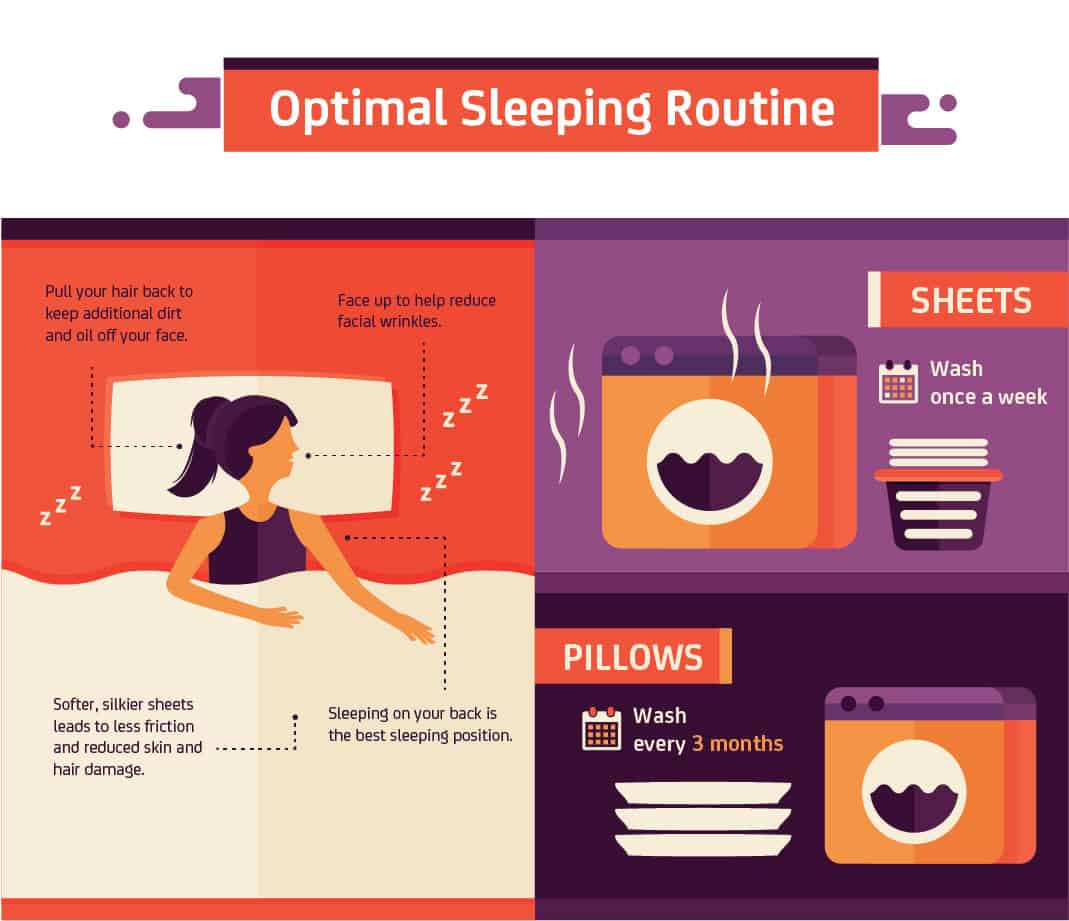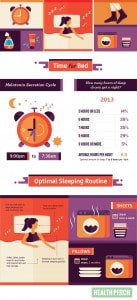Tweak Your Bedtime Routine and Get Gorgeous Overnight
Sleeping Beauty is an age-old fairytale, but most of us probably don’t look like Princess Aurora after a night’s slumber. Morning may bring bags under your eyes, cracked skin, a blemish-covered face, or a head full of frizzy hair, leaving you to wonder how sleeping ends up making such a negative impact on our looks.
The average person spends one third of his or her life in bed, so it makes complete sense to optimize snooze time. We’ve rounded up a few tips and tricks that don’t rely on fancy creams or a whole lot of money to make your wakeful beauty a reality.
Catching Zzs: The Ultimate Anti-Ager
Researchers have long established sleep as a necessary element to achieve overall health. And getting an adequate amount of sleep each night is hands down one of the most crucial and easiest beauty treatments. Not getting enough sleep can do visible damage. In fact, participants in one study perceived sleep-deprived people as less healthy and attractivee than they were after a normal night’s sleep. In another study, participants thought sleep-deprived individuals had eyes that were more swollen and redder, with darker circles as well as paler skin, increased wrinkles and fine lines, and droopy mouth corners. Researchers have also found poor sleep quality can accelerate signs of aging skin and decrease the skin’s ability to repair itself overnight.
Beauty in the Bedroom
When comes to actual sleep positioning, aestheticians suggest back sleeping. There’s no scientific evidence, but back sleeping does prevent the face from making contact with a pillow, and perhaps decrease the chance of wrinkles. Some studies do suggest that burying our faces into a pillowcase for extended periods of time every night may be associated with increased wrinkle formation, yet others find no connection. Smooth satin sheets may also help: The silkier fibers lead to less friction compared to traditional cotton fabric, translating into less potential skin and hair damage. Others believe the material has frizz fighting effects and is less likely to suck hair of natural oils.
Another easy fix: Clean pillowcases. Our trusty pillows harbor all sorts of dirt, oil, bacteria, dust mites, and mold, some of which comes from our hair and skin cells, or leftover makeup. Transferring that grime from pillowcase to face can wreak havoc on our skin. Not regularly washing bedding can also lead to clogged pores and blemishes, while dust mites and other creepy crawlies may trigger allergies and negatively affect quality of sleep.
Make a habit of washing pillowcases once a week in hot water; toss those pillows into the washing machine on gentle every three months or so (read the labels for specific instructions). It also may be a good idea to tie longer hair in a loose knot to keep away additional dirt and oil from transferring from hair to pillow to face.
Sleeping Beauty: Treatments to Try While You Snooze
Wash up before laying down
If you want clear skin in the morning, put the kibosh on dirt and oil at night. Clean sheets are a great defense against breakouts, but washing your face before turning in for the night is even more important.
Heal your heels
Beauty isn’t limited to the neck up. Pay attention to your feet before you snooze. Utilize resting time to moisturize dry, cracked heels. Pop on some socks to keep moisturizer from transferring to the sheets.
Mend split ends
Dip the ends of your hair in a homemade hair mask or store-bought deep conditioner to moisturize locks while you sleep. Wrap a bandana or old T-shirt loosely over your hair to keep the mask from messing up your pillow.
Lengthen lashes
Take advantage of shuteye by giving those lashes some bedtime love. While typical moisturizers are generally not safe to apply near eyes, olive oil and castor oil are both non-toxic (and inexpensive) and may lengthen eyelashes with regular use. Use a small amount to coat the lashes, and test the oils before use to see if your skin has any adverse reactions.
Head to the tropics
Ditch dry skin with a no-fuss nighttime moisturizer: a humidifier. Upping the moisture in the air around you will help hydrate skin without loads of lotion and body butter. When winter rolls around, a humidifier can help stave off cracked lips and bloody noses caused by dry air.
Spot treat
Zap (or shrink) blemishes overnight with a DIY spot treatment. Ingredients such as clay, egg whites, or baking soda can safely tackle pesky blemishes (but use sparingly or else it may dry out the rest of your skin).
De-puff peepers
Rest on two pillows instead of one to elevate the head just a little bit above the rest of the body and help fluids around the eyes drain easier to decrease puffiness. But this is only effective if lying on the back.
Remember: Sleep is one of the most important tools in our beauty arsenal. And a good night’s slumber is essential for just about everything from mood regulation to keeping energy levels up. Tweaking you bedtime routine can amplify sleep’s beauty benefits without a whole lot of time or energy.
Embed Graphic Thumbnail




